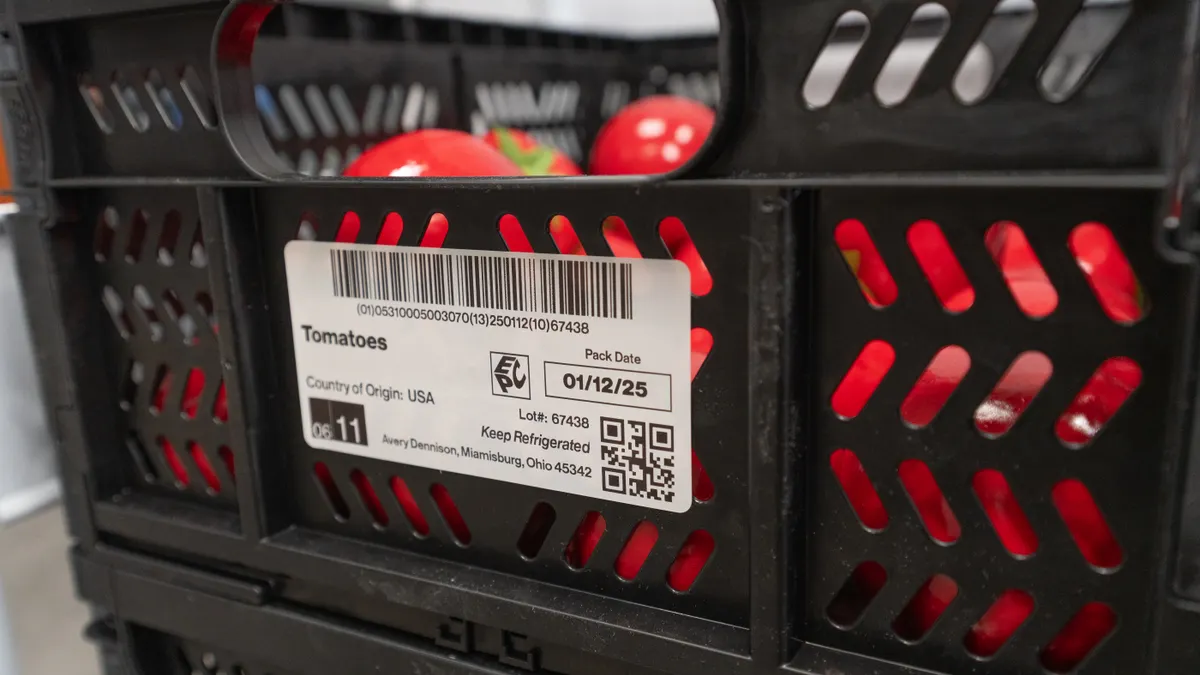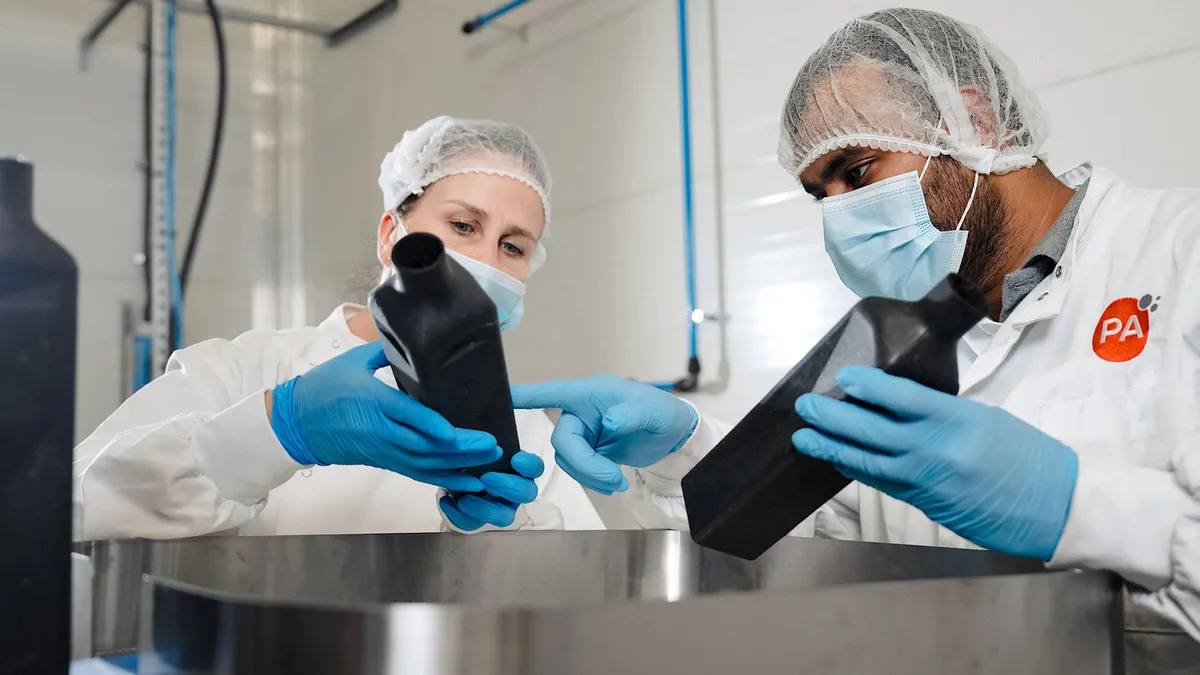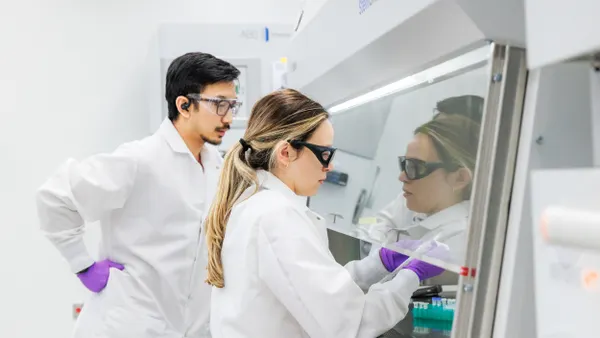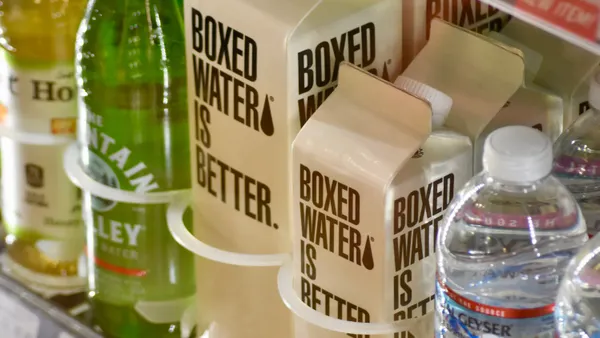Circular economy advocates at the Ellen MacArthur Foundation are calling for a new approach to developing return systems, to tee up multi-brand and multi-retailer systems that then expand geographically and across more products and sectors.
Those calls come in a report detailing a study on scaling returnable packaging released last week that looked at the benefits of reusable versus single-use plastic packaging systems among beverages, personal care products, fresh food and food cupboard items “when designed collaboratively across the industry and operated at large scale.”
The study was released by EMF, with modeling and analysis by Eunomia and Systemiq. Amcor, Amazon, Nestlé, L'Oréal, PepsiCo, The Coca-Cola Co., Unilever and other major brands comprised an advisory group for the project. The study found that the switch from single-use to returnable could slash GHG emissions and water use by 35% to 70% and material use by 45% to 75% for certain applications. Perhaps most dramatically, the authors reported that switching from single-use to returnable rigid packaging showed a 90% reduction in waste generation.
The new report comes as EMF and its partners are engaged in processes to shape new packaging and packaging waste regulations in the European Union as well as a global agreement on plastic pollution through the United Nations. Recently, EMF reported that reusables account for just 1% of plastic packaging among brands that have signed onto EMF’s global commitment to ensure packaging is fit for reuse, recycling or composting come 2025.
“Getting these models working economically at scale, however, will take time and will require significant collaboration between retailers, manufacturers, policymakers, and civil society. Fragmented efforts will not be enough to drive the necessary systems change,” said Unilever’s Jolanda de Rooij, senior sustainability manager, circular economy, in a press release.
Specifically, EMF is calling on industry to collaborate, scale and support return systems as a key packaging priority, and on government to de-risk initial investments, create incentives and ensure a level playing field. It’s asking financial institutions to support such initiatives through innovation funds and imploring society to participate in new systems to shift demand from single use to reuse.
The study highlights three key elements to optimize these systems. Shared infrastructure promotes economies of scale and minimizes friction for consumers, authors explained. Packaging standardization and pooling within product categories boosts efficiency and decreases transport emissions and costs. And high return rates are critical for performance: “When transitioning, it is paramount to progress through the early stage, when return rates are likely very low, as quickly as possible,” the report states.
“We now need to see more research and groundwork in specific geographies and sectors to determine the best course of action and make return models at scale a reality,” said Sander Defruyt, plastics initiative lead at the Ellen MacArthur Foundation, in the press release.













